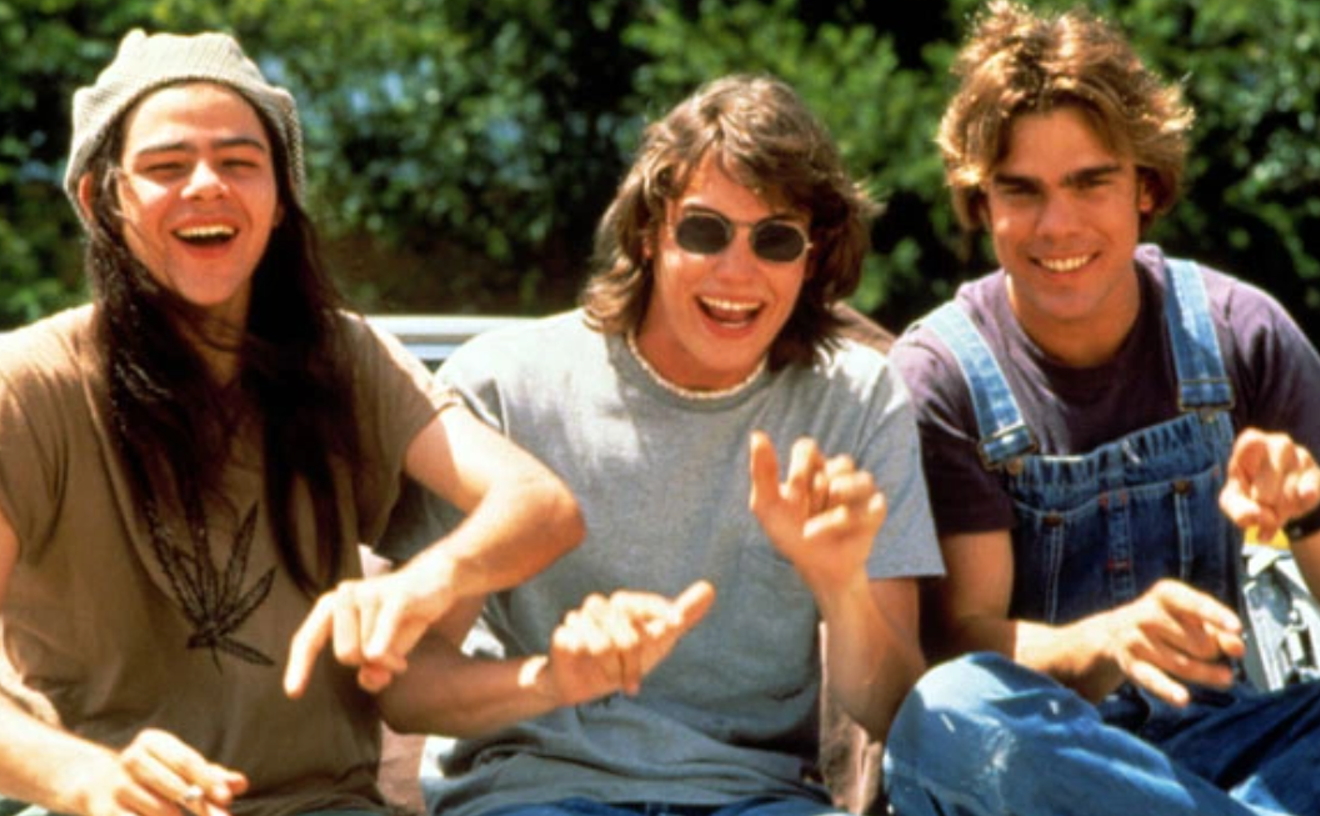I've clearly witnessed one too many of the flashy bus-and-truck musicals that have trouped through town the past few years--a parade of Cats punctuated with road companies of Broadway's most bombastic book musicals, like Rent and Les Miserables and Phantom of the Opera. Most recently I saw Miss Saigon, that tuneless reworking of Puccini's Madama Butterfly and the biggest big-ticket touring musical of them all, which landed its chopper at Gammage Auditorium earlier this month.
While it may not be worth losing sleep over, the state of the American musical deserves our concern. Where the form once relied on melodic scores and good, solid stories, it's come to depend on the kind of flashy showmanship formerly confined to the movies--or the circus. Nowadays, spectacle has replaced songwriting talent, and a book musical tends to travel with more computer technicians than performers. The thinking seems to be that we're less likely to shell out money for stage shows in which people just talk or sing to one another; we require explosives and livestock and a lot of great big props.
It's ironic that the biggest and best example of the new musical-as-spectacle is based on an opera, a form intended as a synthesis of all the arts, which Miss Saigon aspires to be but is not. While Madama Butterfly, Porgy and Bess, Showboat and Carousel are memorable for their tuneful scores and prudent approach to sensitive material, Miss Saigon is known mostly for its onstage aircraft and its oft-reported, record-breaking sales statistics. The show's backstage stories (Britisher Jonathon Pryce was yanked from the original production when Asians picketed the theater, for example) are more compelling than most of what's presented on stage. No one I polled on opening night of Miss Saigon's Tempe engagement seemed troubled that the male lead was out sick, but I'll bet half the house would have demanded a refund if the helicopter had failed to land.
There's a reason why one hears so much about that helicopter, which arrives onstage halfway through Miss Saigon's second act: Aside from the scenery, there's little else of interest here. One can't hum most of the tunes or discuss the shallow politics of the story, which are really just a retread of Les Miserables. In that show, also written by Saigon authors Alain Boulbil and Claude-Michel Schonberg, an unhappy man dies in order to provide a better life for his daughter; in Miss Saigon, a sad woman dies so that her son will have a better future.
Miss Saigon is a stylistic rerun as well, having copied much of the over-orchestrated sound and grandiose staging of Les Mis. Boulbil and Schonberg cover up their lazy self-plagiarizing with more-than-special effects, so the show's theme (Miss Saigon is about something) ends up lost in a sea of spectacular set pieces.
This utter lack of insight into the national crisis it depicts is Miss Saigon's meanest failure. There's no edge to its tale of Amerasian orphan children left behind when American soldiers quit Vietnam, no real commentary on the fate of these abandoned babies or on the ravages of war. As if in apology for their oversight, the authors have tacked on a newsreel of orphaned babies early in the second act. But following the last frame of this hard-to-watch clip, we're dumped back into a tepid tale of mother love and self-sacrifice, a sort of sexed-up Stella Dallas Goes to Vietnam with a back beat.
Miss Saigon is certainly nice to look at, thanks in part to Bob Avian's musical staging, but mostly due to producer Cameron Mackintosh's legendary excesses. Besides the helicopter, there's a gigantic gold statue of Ho Chi Minh; a seedy, neon-lit boulevard; even an automobile.
As spectacle, Miss Saigon is unparalleled; as musical theater, it's a stiff: The score, a creaky combination of pop/rock and lush opera, is dreadful. The lyrics are worse, often silly and always aspiring to poetry (how many words can you rhyme with Vietnam?).
But Miss Saigon's impact on audiences is undeniable: 24 million people have seen the show to date, and non-U.S. grosses alone exceed $400 million. For my money, none of these figures bodes well for the future of musical theater: I fear that audiences will come to expect spectacle with their song and dance. Or that composers will abandon their small, original works to write big, blowzy musicals based on early literature and old operas, with stage directions that read, "She crosses the full-scale, computerized moat and steps into the fully equipped, gas-powered motorboat."
Miss Saigon succeeds for the same reason that performers like Madonna are referred to as "artists": Our standards have been lowered by a steady diet of schlock. Eleven years ago, a musical adaptation of Stephen King's horror novel Carrie was booed off the Broadway stage, and is remembered today as one of the biggest flops of its day. Carrie bombed in spite of its impressive stage wizardry (like Miss Saigon, Carrie's conceits included onstage automobiles) because audiences weren't willing to overlook the show's lousy book and laughable score. Today, stage-engineered special effects are enough.
Miss Saigon's most ironic commentary comes from the show's only interesting character. In "The American Dream," The Engineer, a Eurasian pimp, sings about the joys of capitalism, while all around him, the various appliances that run Miss Saigon's multimillion-dollar machine are chugging away, cranking out another "performance."










